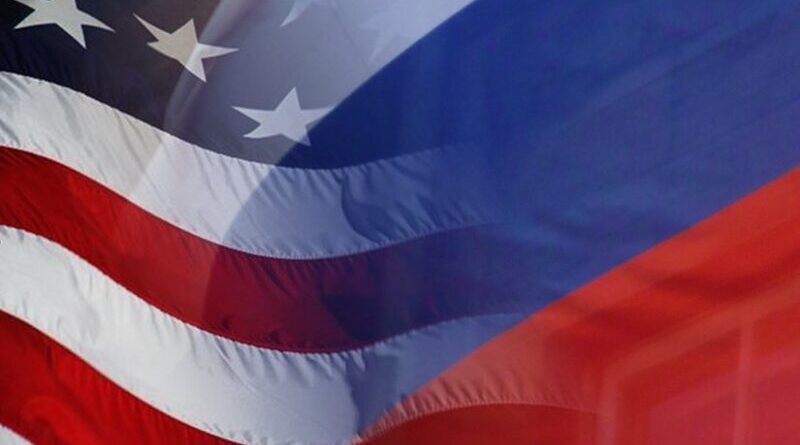Russia-Europe Relations: Is ‘Reset’ Possible? – Interview
By Polina Ostrovskaya
On October 5 in Budapest (Hungary) will be held an international conference «Russia and Europe: Topical Issues of Contemporary International Journalism». The conference is organized by the International Affairs magazine with support of the Ministry of Foreign Affairs and Federal Agency for Press and Mass Media of the Russian Federation. The main topics to be discussed this year are: «Russia-Europe relations: is “reset” possible? Role of media», «Revival of neo-Nazism: analysis of media technologies used by interested parties. Creating a Counterstrategy» and «Media of Russia and Europe. View from the inside».
The conference is held annually in different countries. List of participants traditionally included directors of European media, politicians, diplomats, political and media scientists, management of international media companies. The first version of the conference took place in November 2011 in Paris and has proved the importance of collaboration between Russian and European media. It received status of a topical annual event with the main goal to boost cooperation between Russian and European media.

Today we speak with Mr. Armen Oganesyan, chairman of the conference and editor-in-chief of the magazine International Affairs.
Why is it important for the press to strengthen relations between Russia and the European Union?
I believe your question actually potentially contain 2 questions: a) Why is it important for Russia and European Union to maintain strong relations?; b) Why should media be the facilitator of the dialogue?
To respond to the first question, let’s just look at history, both cultural and historical. Going back to the 18th century and beyond, Russia has invariably been part of both the intra-European and extra-European dialogue. As we fast-forward to the 21st century, European Union is facing a number of internal and externally imposed crises. Just to enumerate some of them: demographic squeeze; internal and external migration; financial shocks and responses; terrorism, both externally exposed and penetrated into the national fabric; climate change; many others. I cannot fathom how a comprehensive lasting solution to the issues I’ve mentioned, as well as to innumerable others, can be attained without participation of Russia.
Now, to answer the second question, let’s look at the role, a high-level purpose of media. We believe that media should essentially be a mirror, an instrument that exposes basic truths. We don’t believe we should affect the historical flow but we do believe we should make the facts, ideas and opinions known and promulgated.
When the responses to the two parts of your question are combined, I believe we can derive the mission we undertake: using the unique skills of media, fully explore the ideas and opinions underpinning the historical and of-the-moment relationship between the European Union and Russia.
For example, look at just two of a number of round tables we’ll conduct: “Russia-Europe relations: is a reset possible? Role of media” and “Media of Russia and Europe. View from the inside.” They aim to exactly achieve what I have written about: take the long, almost historical view of relations between the parties and explore the role media can play in the discussion.
What is your opinion on anti-Russian media propaganda?
It would be primitive to say that there is a single center that coordinates anti-Russian propaganda, even though in the Cold War period there were centers that provided stereotypes. There are such centers today, and there are experts who work for them. People talk of censorship. As for Ukraine and Crimea, each and every one are free to interpret them as they see it fit. But journalists are not free to express their opinions, yet the way the media spoke about these complicated issues can be described as nothing but obviously biased. The guilt here should be evenly spread between politicians and the journalists who listen to them. Today in Russia exist around 80.000 media organizations each having its own different opinion. Radio-stations Echo of Moscow and Serebryany Dozhd are the most outspoken critics of the official foreign policy line in relation to the West. There is no uniformity: colors are different and each and every one is free to choose a channel or an information niche to his/her liking. Is there anything similar in Europe? There is no such variety in Europe especially when it comes to Russia.
What actions should be taken to resist the false information?
To fight fake news one must go back to basics, namely invest into the fact checking group. These are the people left on the sidelines by the rise of social media and the financial squeeze on traditional media. Many publications have scaled down in this area. Well, now we can see that professional fact checkers are indispensable to prevent proliferation of untrue information
How can a journalist remain non-biased in the modern world?
I believe the best thing a journalist can do to present information objectively is to be well informed in a broad sense of the expression. Yes, the journalist needs to dig into the story, to interview all sides and to ask difficult question. But, I think, a journalist must also see the story in the context of historical and social backgrounds. Only then can truly meaningful coverage emerge
Why is the conference going to be in Budapest?
As I’ve stated above, we aim to explore the opinions of the Russia-EU relationship. It becomes almost intuitively correct to hold such a conference in a city that is somewhat between the philosophical positions of Russia and EU, cities that can easily comprehend the positions of each side. We have always held that view and our previous conferences took places in ideologically similar cities to Budapest: Vienna, Berlin, Bratislava. To my view, Budapest, is if i may say so, a highly “dialogical”, open city, nothing to say about traditional hospitality
How can the cultural connection between Russia and Hungary be strengthen?
Older and middle-aged Russians are more familiar with Hungarian history and culture. From my childhood I remember reading well-translated Hungarian folk tales. Several times I re-read the novel Eclipse of the Crescent Moon, admiring the legendary captain István Dobo. Hungarian literature and, of course, the poetry of Sándor Petőfi have been and remain in the standard university curriculum.
In general, Hungarian culture is close to Russian. Histories of Hungary and Russia are full of dramatic events that have challenged the very existence of our people, in turn influencing respective cultures. Russian and Hungarian cultures belong to the world, not only to Europe. However your question is related to the dialogue between the cultures. It seems to me that not enough is being done to popularize Hungarian language in Russia and Russian in Hungary. Post-Soviet generations are poorly acquainted with the best examples of Russian and Hungarian cultures. I think that we need to do more on both sides to support individual and collaborative projects with the aim of building bridges between our countries that would help renew an active dialogue between the cultures.
Role of the “International Affairs” magazine worldwide
Founded in 1922 as a weekly of the USSR People’s Commissariat for Foreign Affairs and re-established as a monthly edition in 1954, International Affairs is a journal of Russia’s Foreign Ministry covering a broad range of subjects in international politics, diplomacy, and global security. Today’s International Affairs is among the world’s key forums for discussions of international policy issues. The English-language version is distributed in the US, digests are published in French, German, Spanish, Portuguese, Polish, Chinese and Arabic. The journal is available to individual and corporate subscribers in Russia and 150 other countries.
International Affairs offers a round-up and competent analysis of Russia’s and the world’s most pressing political and economic problems. Extensive connections within Russia’s Foreign Ministry reinforce the journal’s ability to serve as a credible and well-informed source of information. Contributors to International Affairs comprise a unique team of diplomats and experts from Russian and international politics, research, business, and policy analysis communities.

